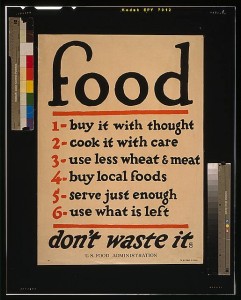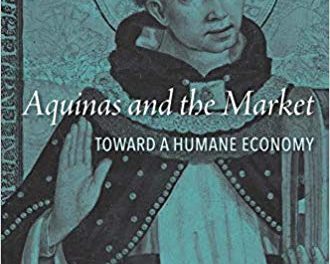A couple weeks I wrote a post about Laudato Si’ and its call on Catholics to lead more ascetic lives. Some people have asked, “What does this mean for me and my daily life?”
I think in the US the call to asceticism means attempting to renounce consumer culture and the liberal politics of both the left and right that support a system designed to create and fulfill unrelenting consumer desires. It means making an attempt wherever we are – even in the midst of middle class American life – to heed Jesus’ call (among other things) to sell all we have and give to the poor.
I say “attempt” because I am not sure that those of us embedded in this culture can ever quite fully renounce it. Even asceticism can become commodified, let us not forget!
The Balthasarian Option
Still, attempting the practices of ascetism are worth it, I think, especially in a world that needs that kind of witness. To borrow a quote from blogger John Herreid’s great post on the Benedict Option (and as he later argues, the Balthasarian Option):
But what can be done amid this want of culture wrought by the machine. I suppose one can try to build islands of humanity, and in this project Christians could and should be leading; such actions may have a contagious effect on others and stimulate an asceticism which renounces the excessive goods of consumerism, simply to become more human.
In the face of the multilayered and complex aspects of our consumer culture, it can be difficult to know where to begin or even whether to begin. But for von Balthasar, the point isn’t to “solve” something – but rather to live exactly in our small places, where we use what we have to build an “island.”
But an island it will be – small, and indubitably itself – perhaps not making much of a dent in the systemic continent. But as itself, it will be important. Becoming human is no small thing.
This, too, will be the answer to those who wonder whether there is an “end” to the changes we must make – for I doubt that Jesus ever stops calling us to live in a way that generates more and more love. So no – there is no end, no point where we say, we have solved the problem.
I think that problem solving is not really the point of asceticism. If it solves something, let it be problem-solving our propensity to treat others as objects in a world that so easily treats all of us, even the able-bodied, already-born, and young, as objects.
Building an Island of Humanity?
But what to do in an effort to build an island of humanity?
Perhaps a start – a reminder from within this world that we are called to love – is suggested in the video below from John Oliver’s show on food waste. (If you’ve not watched this show, here is fair warning for strong language use…) We waste at least a quarter of our food, to the detriment of our budgets, our bellies, our communities, and our environment. About 50 million people in the US live with food uncertainty – and I know of at least two neighborhoods within walking distance of my university where food uncertainty is the norm.
Oliver discusses other aspects of food waste: that sell by dates are – except for infant formula – not required nor do those dates even tell us anything useful. But moreover, the reasons given for not donating food (legal liability) turn out, on Oliver’s investigation, not to be valid, since there have not been any legal cases involving donated food.
Let us take Oliver’s concerns and think about them in light of our faith in Christ. We come from a tradition that utilizes gleaning (going after the harvest to collect leftover food for those with none), and that sees feeding the hungry as an act of mercy. In our tradition, both fasting and feasting are relished and important for our way of life.
A difficulty with offering concrete steps is that the suggester can always come across as arrogant – which I don’t want to do because I’m still learning myself how to renounce, and become more human.
But here are some beginning thoughts in the hopes, rather, of fostering a conversation:
Some Individual/Family Steps
– Remaking leftovers into other edibles. Banana bread, preserves, sauerkraut, yogurt and even the humble casserole are some such uses. Some are more time consuming than others. I think we do what we can – more is better, most anything can lead toward that island, especially when shared with others
– Instead of buying new food this week, see how far we can get on what we’ve already got
– Insofar as we can, support farmers and others who sell produce picked in limited quantities daily, and who donate leftovers
– Decrease consumption of meat, a very wasteful crop as it is typically grown these days. Decrease use of other wasteful crops like soy and corn (e.g. less boxed food)- and use these sparingly, if at all, with preference given where possible to those farmers who cultivate meat, soy and corn in sustainable ways.
Some Communal Steps
– Donate food and dollars to food pantries.
– Check out what local laws are regarding food donation and distribution and work to change them with respect to industrial distribution
– Join a gleaning group






Thank you for distilling the Pope’s sweeping vision in to simple practical real world action, that seems quite helpful.
I wonder if the message could be strengthened by further focus and simplification? While the Pope and contributors to this blog all excel at very intelligent highly articulate writing, there is the possibility that these very talents could result in speaking over the heads of many in the audience.
What if the Pope called upon all Catholics to become vegetarians?
It seems this would be a very simple easily understood message that would be both challenging and doable, and that would at one time speak to many of the Pope’s themes, such as asceticism, the environment, and respect for life.
Scientific American states…
http://www.scientificamerican.com/article/the-greenhouse-hamburger/
“According to a 2006 report by the United Nations Food and Agriculture Organization (FAO), our diets and, specifically, the meat in them cause more greenhouse gases carbon dioxide (CO2), methane, nitrous oxide, and the like to spew into the atmosphere than either transportation or industry.”
Thus, meat production not only kills the animals it harvests it’s also a leading cause of global warming, which in turn accelerates a historic rate of species extinction, spreading the wave of death in all directions.
Catholic = Vegetarian
Two words.
Sometimes the simplest messages can be the most powerful.
What a great post! I’d just add one suggestion. If you absolutely cannot use the food, compost it and then use it in your garden (rural, urban, or otherwise) to help grow some of your own food…and/or donate it to others in the community who are growing their own food.
Hi Jana– Also love the post. It is making me think about saying something about the Balthasar option (and not on Charlie’s facebook page!). I use this graphic from The Atlantic, which I think is helpful in seeing what is going on:
http://www.theatlantic.com/health/archive/2012/08/how-40-of-our-food-goes-to-waste/261498/
Based on other reading, this does seem might to me, that whole there are certainly problems in the food distribution system, there’s also a lot of donation and clever use that goes on. My mother worked at a homeless shelter that would get enormous deliveries of sell-by bread from grocers, and I did a food drop recently at a mission here where there was so much donated food that the team ended up opening many cases of organic cereal (!!) and just dumping the contents into a big bin that a local farmer picks up to feed pigs. The big problem is at the consumption end.